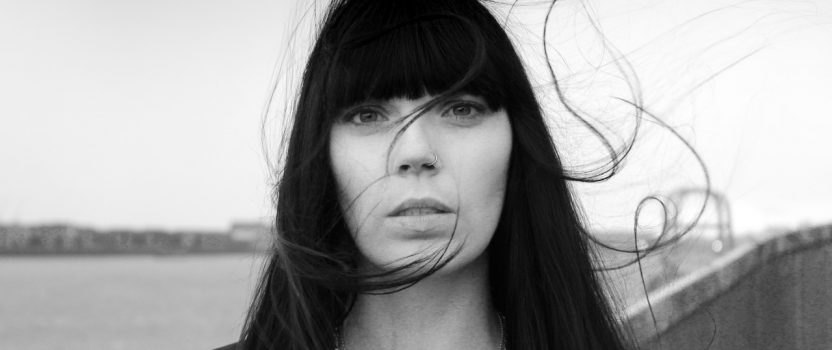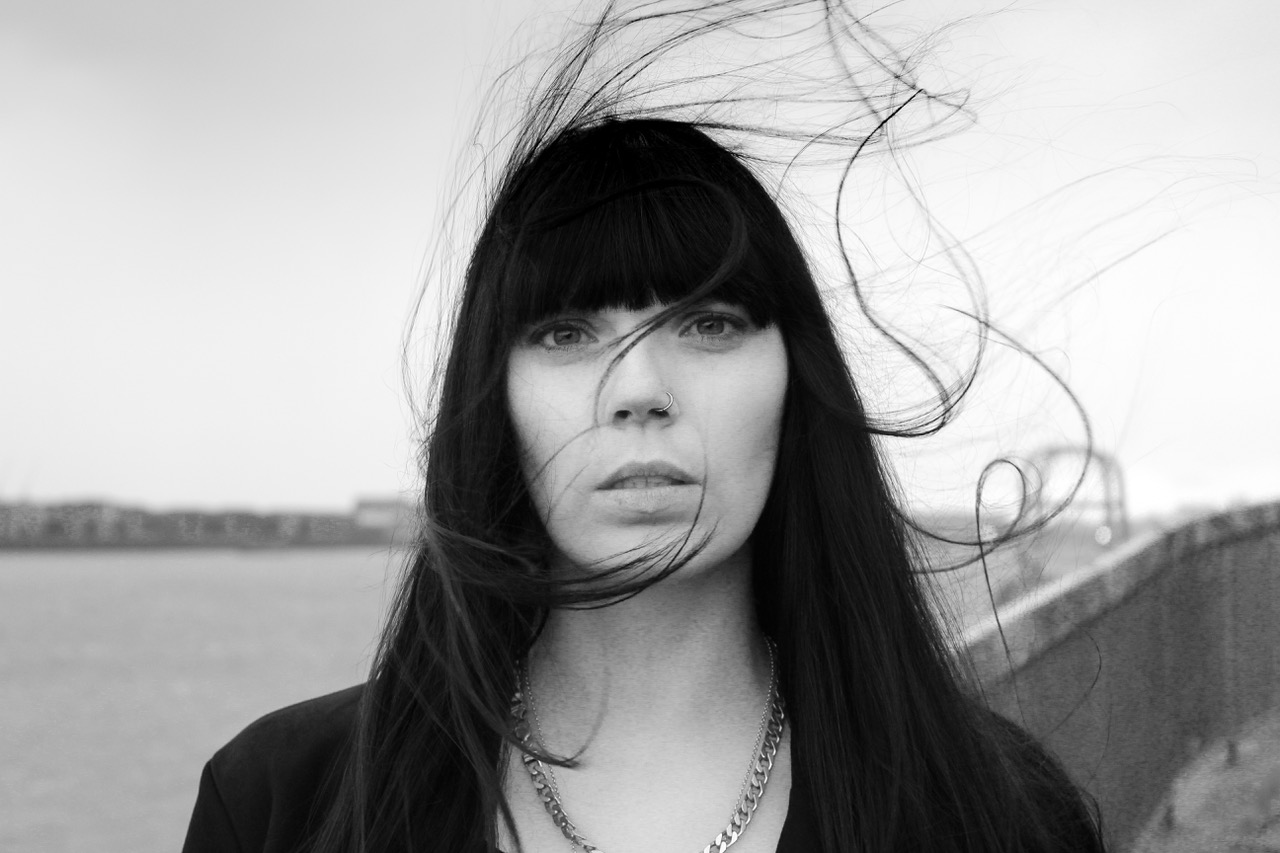Isolation Blues: A conversation with A.A. Williams
If there is one artist that is rapidly drawing the attention of every music lover out there, it’s A.A. Williams. Mixing the wonderful and magical elements of post-rock and post-classical, Williams composes songs that are introspective and soul-searching by nature, her delicate and melodic voice serving as both a comfort blanket and a longing hug for the listener. The unique style and approach to music present in her debut EP caught the attention of legendary bands such as Mono, with whom she collaborated on a fantastic EP, Exit in Darkness. Soon after, she released her own debut LP, Forever Blue, to tremendous praise from the media and whilst deep into the quarantine that was felt around the world in 2020, she challenged herself with a cover video series that would eventually become her latest release to date, Songs From Isolation, a record that features piano covers of popular songs by Radiohead, Nine Inch Nails, The Cure and Nick Cave, among others.
Next year, her plans are big – a tour with Mono that will enable her to finally bring her music to audiences around Europe, including Portugal, where she will be performing for the first time. With all of the above in mind, we spoke with A.A. Williams about her musical upbringing and the creative process behind her debut EP and LP, as well as the Songs From Isolation cover series record and her collaboration and incoming European tour with Mono.
Congratulations on the release of Songs From Isolation!
Thank you, I’m so pleased with how it’s gone down! When I started the project, I never imagined it would be an album or even released, really. I suppose I kind of made some YouTube videos and I didn’t expect to get past that. Everyone has been showing pictures of their lovely vinyl and writing very kind things, so it’s been really lovely.
Tell me a bit about your relationship with music growing up: what was your first contact with music, how did you start playing music and where did the interest in writing and composing music come from?
I began learning music very early, I think I started piano lessons originally. I was about six years old and there was a teacher who lived very close to my primary school, so I think my parents must have been recommended her by someone else. So, I began to have piano lessons and I found it really enjoyable; even when I was young, I didn’t find practice to be a chore, I really enjoyed it, it was a way of expressing myself. I think I was quite shy when I was young and so, having a musical outlet was a really wonderful way of expressing how I felt sometimes, you know? Like, my mum always says that sometimes when she saw me practice, I was just bashing the hell out of it or I was playing everything at five times the speed, just as a way of getting some teenage angst out or feeling a bit blue. Ever since I was very small, I’ve had that outlet, which has been wonderful, but I never really contemplated writing myself until I found the guitar about, oh, I don’t know, five or six years ago, I guess? I found this guitar and it was broken, so I took it home and asked a good friend to try and repair it for me. I had never played the guitar; I had played the cello, I had studied that, so I thought, okay, it’s a string instrument, let’s try. And a good friend of mine basically fixed it for me and I thought, well, the best way to learn this instrument is to try and write some songs. So, very tentatively and very basically, I started trying to just get a feel of working with a guitar as an instrument and also writing, which I had never done before. And it was very enjoyable and very therapeutic.
“I began to have piano lessons and I found it really enjoyable; even when I was young, I didn’t find practice to be a chore, I really enjoyed it, it was a way of expressing myself.”
Did any of those songs end up on your debut EP?
No, god no! [laughs] There was a lot of stuff that was canned, you know what I mean? When you’re starting anything, it takes a long time to find a style for yourself and to feel confident, and I think, especially when one is starting something new that is artistic, it’s easy to try one of everything. You know, you try and write a ska song, you try and write a rockabilly song, you try and write a punk song. You try everything because there is so much ground that you could potentially cover, you have a bash at any of it just to try and understand how are these songs constructed, what makes them the way they are. And it took me years of just playing around in the background, just when I had a bit of spare time, trying stuff out and mucking around and also becoming confident as a singer and starting to even think about putting lyrics. It took ages but I think it was something I was doing in the background with myself. It wasn’t like there was any pressure, I was just working in the background and gradually started feeling comfortable with a style that I was making for myself.
When was the moment where you felt like, “okay, I got something here, it’s time to record”?
I don’t think there was one pinnacle moment, there was not like, one song or one kind of point. I think it probably wasn’t that long before I started to send them out. My first deal for the debut EP was about the middle of 2018, I think. So, I probably would say maybe from the beginning of that year, I started to think, you know, maybe this could be something larger than what it is now – it was just me having a project, basically. And I guess I gradually thought, right, the only way to do this is to demo these songs properly and to send them to people. You know, some people just have all these magical contacts within the industry, I didn’t have that. I worked in music but as a classical musician, I didn’t have any contacts in popular music. I didn’t know any managers, I didn’t know any labels, I didn’t know anybody. So, it was just a case of doing it properly old-school like, recording the demos, sending them to people and trying to get some feedback to see what people thought.
After your debut EP and before you released your debut LP, you collaborated with Mono on the Exit in Darkness EP. How did that all come about and how was it collaborating with such a distinguished post-rock group?
It was amazing, working with the band was so easy! I mean, I had originally started chatting with Taka on email, we share the same booking agents. I met them first physically at Roadburn but we’d had a few emails because my agent had sent them the original EP just to see if they liked it, really, without any kind of further intentions, just to get some feedback. This idea of a collaboration popped up and we started chatting, Taka and I, and we realized we felt quite similarly about just composition as a whole, what we were trying to achieve and how we were trying to do it. We started sending each other a few ideas and to be honest, it came together really quickly, which was very wonderful. “Exit in Darkness” as a song came together really quickly; they came to the UK, they were finishing an EU tour and managed to stop in London for like one day at the very end of this tour. They had been working so hard doing all the promo for Nowhere Now Here and they had just been touring and touring, and they came via the UK on their way home, I think they had a festival show – I think it might have been Supersonic. They came down to London and recorded all of their stuff in a day and then they went home and just collapsed in tiredness, I think. [laughs] So, I only worked with them properly for one full day, really. I recorded all of my parts because I thought, well, I don’t know how much time we’ll need. So, I went in the day before and did all my stuff, and then was there with the band to organize everything and to sort out the instrumentation and stuff the next day. It was so easy, it was a real pleasure.
And then to work on “Winter Light”, which is the B-side, Taka sent me these amazing 9 minutes of just beautiful textures and I thought, what am I going to do here? [laughs] I was on tour with my band, I think it was on The Sisters of Mercy tour, and I remember doing a demo of the vocals in my hotel room, in this tiny French cabin, you know, on those kind of Holiday parks where they have kayaks and stuff. We had like an evening off, so I remember trying to send this demo off in this little French countryside chalet and that was pretty much it like, okay, that’s great, now record it properly, and that was “Winter Light”. It was a super simple but really enjoyable process.
What was the creative and writing process like for Forever Blue?
Forever Blue is interesting because I actually wrote half the album about a year before the rest. The very first show with my band was sweetly performed at Roadburn Festival and I’d been offered this slot, which was 50 minutes, and I only had the EP, which was 20 minutes, so I had to write some songs, basically. [laughs] From that came three or four songs which turned into album songs – there was “Melt”, “Love And Pain”, “Wait” and the beginnings of “Fearless”, I think. Those songs had been kind of knocking around in the live set for quite a while and then, in terms of writing… I mean, I had never written an album, you know, so it was a case of taking these songs and just playing with loads of ideas and just testing stuff out in terms of the instrumentation, structure and all of that stuff. I guess with everybody, writing is a constant development process, you know? You’re always working on the next idea, the next thing you are trying to achieve, you’re never going backwards. You’re just testing a new thing, trying a new thing. So I think, Forever Blue is a continuation of the EP, I’m continuing to explore lyrical themes but also melodic textures and harmonies and, you know, finding my voice as a writer, which is not something that I have really done very much. It’s all a learning process for me.
In terms of the subject matter, it’s quite self-exploratory. I look inwards for inspiration sometimes because, I guess, if anyone knows anything better than anything else it’s themselves, so I try to understand myself as an individual and try and do it in a way that others could apply themselves to the same feeling, you know what I mean?
Does the title of Forever Blue tie into those feelings you just described?
Definitely, I’ve been a fairly miserable person for quite a long time. [laughs] I’ve just always been like that, you know what I mean? Ever since I was a little kid; I was very shy when I was young. I was very nervous and so desperately frightened of anybody thinking that I made a mistake or maybe said a wrong thing at school, I was just so petrified of all of that. And I guess when I became a teenager, I probably retreated inwards even further because, you know, teenage years are just awkward for everybody. It’s one of those things, I think everybody is like that to a point. I think some people don’t really dwell on it, some people bottle it up, some people ignore it completely. I can’t believe there are people out there that are perpetually happy, you know what I mean? It doesn’t seem right to me. If there are, I haven’t met one. So yeah, for me it’s just a perpetual situation, really, and that’s fine, I live with it and I deal with it in my way, and one of my ways is writing music, I guess.
Did you feel any anxiety because of it when releasing the record?
I don’t know. I mean, one of the things I do try and do is to make sure that when I’m writing things, I write them in a fairly plain way. You know, there’s no bells and whistles, there are no epic metaphors. Like, it’s not Radiohead; I’m not very good at that, so I don’t do it. So, it’s quite simple text but I don’t have a problem with feeling vulnerable, I don’t have an issue with that. So, I don’t feel worried that people might look at me and judge in that way. I don’t worry too much about it because you kind of separate yourself a little bit from it, you know? It could be about anyone and you could make it about ten different things if you wanted to. It’s just about how different listeners will perceive it in a different way.
“I guess with everybody, writing is a constant development process, you know? You’re always working on the next idea, the next thing you are trying to achieve, you’re never going backwards.”
Forever Blue features three very special guests – Johannes Persson and Fredrik Kihlberg of Cult of Luna, and Tom Fleming. How did these guest appearances all come about?
Working with Johannes and Fredrik, again, we share the same booking agent, so I’d been chatting to Johannes on and off on Instagramable things, just over the course of my career to date. So again, my manager sent him the EP just to say, “hey, look at this new artist”, you know? We’d been chatting away and I just thought, you know what, what would be really nice is to add some different vocal textures to this album. Because I can sing in a way, but I can’t do heavy vocals, I sound terrible. And with Fredrik, it was about adding that range that I just can’t get anywhere near, you know? It was about adding vocal ideas and textures that I can’t achieve myself, and you need a person to create – not an instrument, you need a voice. And the same with Tom Fleming, it was lovely to have all these different textures amplifying what’s already on the record.
They were like your helping hands.
Yeah, absolutely! Johannes’ growl is like a distorted guitar on steroids, it’s an otherworldly sound. It’s wonderful because it gives such drama to the end of “Fearless”, which is the song he features on. The whole thing just explodes way more than it could have done if I hadn’t put him on there. I’m so pleased about all of their contributions, I think they added loads to the album, I think it sounds great.
During the quarantine, you started releasing cover songs as part of the Songs From Isolation series, which eventually became its own release. Where did the idea of doing a cover song series come from?
To be honest, I didn’t expect it to be covers! [laughs] I posted a little video on my Insta stories asking listeners, hey, I’d like to make a couple of piano videos, would you like to suggest any songs? And I thought they would suggest my songs and they didn’t. [laughs] They started suggesting Radiohead, Nine Inch Nails and all these other artists, and I thought, wow, I will do that instead then, that’s probably a better idea. So, the first flurry of suggestions, there were so many Radiohead suggestions, and I thought, wow, let’s try something, let’s do the big one. If we’re going to do it, let’s do it, you know? So yeah, fuck it, let’s do “Creep”. I just thought, I know lots of people have done it, I know it’s not exactly an original choice but I am working with song suggestions that I haven’t made. This is working with a list of songs that fans have sent on Instagram, Twitter and everything, So, I’m working with what I’ve got here and I’m trying to be truthful to the idea that these guys have given me material to work with. So, let’s do “Creep” and maybe at the bottom of the video say, okay, if anybody has any suggestions for the next one, let me know. And so, it just started as that. It was one video with a little comment section and that was that. And then people suggested and again, I chose a song for the next video.
And maybe three or four songs in, someone posted, “oh, do you reckon you’ll release these?” and I thought, well, I don’t know, I hadn’t really thought about it. But it became a little conversation that was happening between my manager and I and the label and everything. And I thought, you know what, why not? If listeners are enjoying this kind of dialogue between me and them, you know, getting them to suggest songs and they are enjoying the videos, why not put them together if we can, you know? And so, it was all born out of this unfortunate circumstance that we all find ourselves in; you know, I had a tour cut short and wasn’t really sure what to do. And typically, I think when people are kind of stressed out or upset over all the uncertainty of the pandemic, especially at the beginning. I mean, in the UK, my god, they really went for it with the scaremongering, you know what I mean? For me, the answer in a situation like that is to be busy, focused on something else, trying to just get through day-by-day by putting my attention towards something else. So, these videos, I had never made a video before. My husband filmed them all and we used all the equipment that we just had in the house, you know? So, the wrong microphones probably in the wrong place, the piano, I had my guitar, a pedalboard and a little amp, and that was all that we had because we weren’t meant to be going out. I couldn’t do it in the studio and I couldn’t get all my friends around.
The whole situation was born of this circumstance and since the release, there have been a few reviewers who didn’t quite get it. They were like, “oh, but she could have chosen other songs”, but like, no, the whole point was that the fans were suggesting these songs, so I’m not going to change the format halfway through. But also, people going like, “oh, but it would have been so much better if it was full band”, like, there has been a fucking lockdown! [laughs] All I got in my house is a piano and a microphone, so that’s what we’re going to do. There has been a few people that kind of missed the point a little bit, but to be totally honest, I’m pleased with it, I think it’s cool, I think it’s a nice collection of songs and it’s really nice to see people’s response to it. Like, someone posted a picture of the vinyl they had received and saying that this person lived on their own and when you listen to it, it sounds like the time that we’re in, you know what I mean? It’s small, it’s intimate, it’s a bit mournful and it’s kind of fine. It’s kind of comforting because they are songs that are familiar to people and it feels comforting. They know the material, so they don’t have to worry about that – it’s like a little comfort blanket.
Was there any cover in specific that was hard for you to do? Which one did you enjoy most doing?
I’d say the hardest one was probably “Every Day Is Exactly The Same” [by Nine Inch Nails], though I think it was probably the one that, when I finished I was most satisfied with because it was so complicated to put together. The original is so complex and there is so much stuff going on, to take that and to make it for voice and piano, and I had a little vocal loop pedal, which was my first attempt at using this. And because we were filming it all live, oh my god, the amount of times I got it wrong. But it’s a little challenge, you’re sitting at home during lockdown, you might as well try and learn something new. I’m so pleased with how it came out because it was a bit of an experiment, to be honest. I think it was definitely the most enjoyable to have finished, but I loved working with all of them, you know? That’s part of the reason I got to choose out of the list, that I did choose those ones because they worked. Some of them definitely didn’t work and there were some that definitely didn’t make sense. [laughs]
Next year, you will be going on an European Tour with Mono and you will be playing Portugal for the first time. What are your expectations for those shows and what are you most excited about?
Oh my god, just getting into a room and making some noise, I can’t wait! I mean, touring is a funny thing because it’s not just about those forty minutes that you are on stage. The whole rest of your day is just this weird routine where everything is the same, but everything is different every day. You get up, you drive for ages, you stop at service stations, you eat some food, you get to the venue, you unpack it all, you soundcheck, you do the gig, you pack it all in the van, you drive, you know what I mean? There is so much else that goes with touring; it’s this weird, kind of nomadic lifestyle. I miss that just as much as being in a room with other humans making noise. It’s such a sensory experience being in a show, the volume, the physical volume, the lights, oh god, it’s going to be fucking brilliant, I can’t wait!
And specifically about Portugal, what are your expectations?
Well, I hope it’s warm! [laughs] I think I have only once been to Portugal; I think I went on a holiday when I was quite young. But I can’t wait. Honestly, that’s one of the beautiful things about touring, you get to go to so many lovely places and, okay, you don’t necessarily get to spend a lot of time in each of these places, so your experience of the country or the city is sometimes reduced to how you did you enjoy the show, was the food nice, was the hotel nice, and then you move on and that’s about it. So, unfortunately, sometimes there isn’t that time to explore but yeah, being able to go to lots of beautiful new places and discover new things, it’s really great.
“There is so much else that goes with touring; it’s this weird, kind of nomadic lifestyle. I miss that just as much as being in a room with other humans making noise.”
Interview by Filipe Silva
Photo courtesy of A.A. Williams





Leave a Reply
Your email is safe with us.